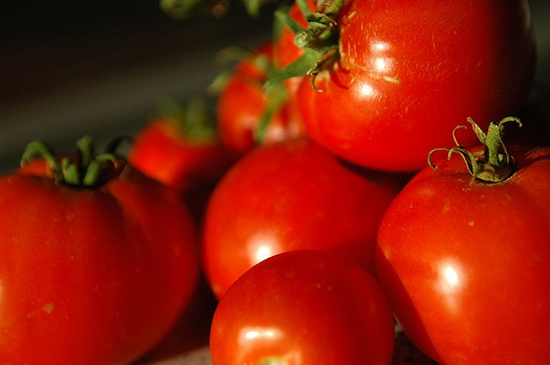Lycopene, one of the many types of antioxidants, is a great addition to a diet that reduces breast cancer risk. Lycopene is the compound that gives certain fruits and vegetables their orange, red, or yellow color. Like other antioxidants, lycopene is said to protect the body’s cells from damage caused by free radicals and carcinogens. Lycopene can be found in:
- Tomatoes
- Tomato sauce, juice & ketchup
- Red bell peppers
- Red carrots
- Watermelon
- Papaya
- Pink and red grapefruit
- Guava
- Gac, a southeast Asian fruit
- Dried herbs, especially parsley and basil
While there isn’t a direct cause and effect relationship between lack of lycopene and breast cancer, many studies suggest that diets high in lycopene reduce chances of developing breast cancer.
One 1999 study published in the Journal of the National Cancer Institute compiled 72 separate studies on lycopene and tomato-based products. Fifty-seven of those studies, 35 of which showed a significant correlation, showed an inverse relationship between cancer risk and blood lycopene levels.
A 2008 study published in the American Journal of Clinical Nutrition followed 84,805 women for more than 7 years, examining their lycopene intake and their breast cancer diagnosis rate. The study found that higher levels of lycopene intake were associated with a significantly lower risk of certain types of invasive breast cancers in post-menopausal women.
Unlike other nutrients that are often destroyed by heat, lycopene is more useable by our bodies when cooked. We are also more likely to absorb the antioxidant when it is consumed at the same time as fats, such as the olive oil found in tomato sauce. If not cooking from scratch, consider buying canned sauce found in glass jars or BPA-free cans. While few companies have switched to BPA-free packaging in the canned food industry, Muir Glen, an organic division of General Mills, has begun the switch. Unfortunately, due to lack of labeling and the product’s two and half year shelf life, it is difficult to tell which Muir Glen cans have the BPA-free lining. Your best bet is to look for a 2014 or 2015 expiration date on the can. BPA-free cans have a gold-orange lining instead of white.
Need some lycopene-rich recipe ideas? Check out these:
What are your favorite recipes that use tomatoes or other lycopene-rich vegetables? We’d love to hear about them in the comments below!
